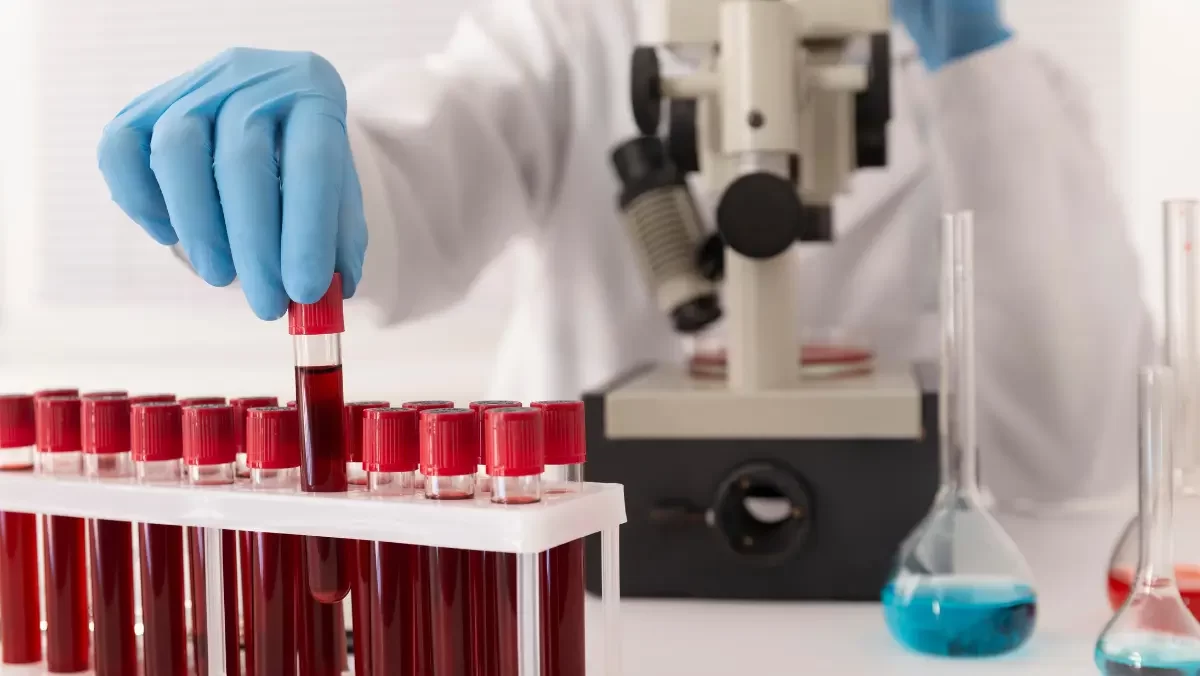Hematology is the branch of medicine focused on the study, diagnosis, treatment, and prevention of diseases related to blood and its components. This field covers conditions affecting red blood cells, white blood cells, platelets, bone marrow, lymph nodes, and blood vessels. Blood disorders can range from common conditions like anemia to complex diseases such as leukemia and hemophilia. Hematologists play a crucial role in managing these disorders through specialized tests, treatments, and advanced therapies, ensuring effective patient care and improved outcomes. Early diagnosis and targeted treatments have significantly enhanced the prognosis of many blood-related conditions, making hematology a vital part of modern healthcare.
What is Hematology?
Hematology is the medical specialty dedicated to diagnosing and treating disorders related to blood and blood-forming tissues. It involves studying blood composition, functions, and diseases, ensuring early detection and management of conditions like clotting disorders, infections, and malignancies.
- Hematologists specialize in managing a wide range of blood-related conditions, including anemia, hemophilia, leukemia, lymphoma, and other complex disorders that impact blood cell production and function.
- This field incorporates various laboratory tests and diagnostic procedures, such as complete blood counts (CBC), bone marrow biopsies, and coagulation studies, to assess blood health and detect abnormalities at an early stage.
- Recent advancements in hematology have revolutionized treatment options, leading to life-saving therapies such as stem cell transplants, targeted cancer treatments, and innovative drug therapies that significantly improve patient survival and quality of life.
Treatments
Hematology treatments vary based on the specific condition, severity, and individual patient needs. These treatments focus on restoring normal blood function, preventing complications, and improving quality of life.
- Medications play a vital role in hematologic treatments, including iron supplements for anemia, anticoagulants to manage clotting disorders, and chemotherapy or immunotherapy for patients diagnosed with various forms of blood cancer.
- Blood transfusions are essential for replenishing healthy blood cells, particularly for patients suffering from severe anemia, thalassemia, or bleeding disorders that require frequent transfusions to maintain normal blood function.
- Bone marrow transplants serve as a life-saving procedure, replacing damaged or diseased bone marrow with healthy cells, especially in conditions like leukemia, lymphoma, and aplastic anemia.
- Targeted therapies and immunotherapies are cutting-edge treatments, designed to specifically attack malignant blood cells with minimal damage to surrounding healthy tissues, offering more precise and effective treatment for patients with blood cancers.
Signs and Symptoms
Hematologic disorders often present with a variety of symptoms that may indicate underlying blood abnormalities. Recognizing these signs early can lead to timely diagnosis and treatment.
- Fatigue and persistent weakness are common symptoms, often caused by anemia due to insufficient red blood cells, leading to decreased oxygen transport and reduced energy levels in the body.
- Excessive bruising, prolonged bleeding, or frequent nosebleeds may indicate clotting disorders such as hemophilia or platelet deficiencies, which impair the body’s ability to form clots and stop bleeding effectively.
- Frequent infections and a weakened immune response are often observed in conditions like leukemia, where abnormal white blood cells compromise the body’s ability to fight off bacteria, viruses, and other pathogens.
- Swollen lymph nodes, particularly in the neck, armpits, or groin, can be a sign of lymphoma or other blood-related disorders, indicating abnormal cell growth or infection in the lymphatic system.
Procedure
Diagnostic and therapeutic procedures in hematology are essential for accurate disease identification and effective management. These procedures help determine the severity and progression of a condition, guiding treatment decisions.
- A complete blood count (CBC) is a fundamental test, measuring the levels of red and white blood cells, platelets, hemoglobin, and hematocrit, which provide crucial information about overall blood health.
- Bone marrow biopsy is an advanced diagnostic procedure, where a sample of bone marrow is extracted and examined under a microscope to detect blood cancers, infections, or marrow disorders affecting blood cell production.
- Coagulation tests assess how quickly blood clots form, helping diagnose bleeding disorders such as hemophilia, deep vein thrombosis, and other conditions that impact the body’s clotting mechanism.
- Flow cytometry and genetic testing provide in-depth analysis, allowing hematologists to identify blood cancers, immune system abnormalities, and hereditary disorders by evaluating cell markers and genetic mutations.
Recovery
Recovery from hematologic conditions depends on the type of disorder, treatment received, and overall health status of the patient. Proper medical care and lifestyle adjustments significantly influence the recovery process.
- Regular follow-up care with a hematologist is essential, ensuring that treatment remains effective, monitoring blood counts, and detecting any potential relapses or complications early.
- A well-balanced, nutrient-rich diet plays a crucial role in recovery, incorporating foods high in iron, vitamin B12, and folic acid to support healthy blood cell production and overall immune function.
- Engaging in moderate physical activity and rehabilitation exercises helps improve blood circulation, boost energy levels, and enhance overall well-being, aiding in a faster and smoother recovery process.
- Strict medication adherence is critical for successful treatment outcomes, as prescribed drugs, such as anticoagulants or chemotherapy, must be taken consistently to prevent relapses and ensure the best possible health results.
Conclusion
Hematology is a critical field that plays a significant role in diagnosing and treating blood-related disorders. With advancements in medical science, patients now have access to innovative treatments that enhance survival rates and quality of life. From anemia to complex cancers, hematologists provide essential care through precise diagnostics and targeted therapies. Seeking timely medical intervention is crucial for managing hematologic disorders effectively.
Accurate diagnosis, especially in neurology, is essential for determining effective treatment, ensuring proper management of neurological disorders, and improving outcomes.














